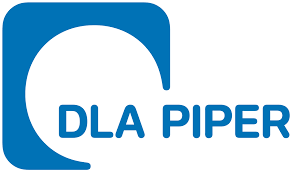Written by: Diego Peña, Joaquin Santos, DLA Piper.
The Chilean government has published Supreme Decree No. 661/2024 (DS No. 661) in its Official Gazette, introducing a series of actions to be implemented by regulated entities in order to comply with existing laws.
DS No. 661 was initially issued on June 3, 2024 within the framework of Law No. 21,634/2023, which modernizes Law No. 19,886/2003 (Law No. 19,886) and other laws aimed at improving the quality of public spending, increasing standards of probity and transparency, and introducing circular economic principles into state purchases.
This law expands the catalogue of entities to which Law No. 19,886 applies, such as autonomous bodies and, in general, any entity that receives public funds. This regulation applies to all of them, without exception.
Below, we detail some of the main regulatory changes of Law No. 19,886 and DS No. 661 that are specific to the enforcement of the second phase of the law, which occurred on December 12, 2024.
Law No. 19,886 and DS No. 661 regulatory changes
-
- Integrity programs:Â Suppliers are required to have integrity programs, which are now considered evaluation criteria in bidding bases and included in contracts for direct deals.
-
- Confidential reporting channels:Â Any individual is allowed to report potential illegal or arbitrary actions or omissions for determination if they are in violation of the law.
-
- Claims platform:Â Platforms are required to receive complaints, reports, and public observations regarding procurement processes.
-
- Technical and financial suitability: For suppliers in the supplier registry, bids or contracts exceeding UTM5,000 (approximately USD340,000) will require technical and economic analyses of their characteristics and any goods and/or services needed for their completion.
-
- Bid bond:Â In public tenders, the requirement to present a bid bond is limited to those amounts exceeding UTM5,000, and it cannot exceed three percent of the bid amount.
-
- Simultaneous offers: Simultaneous offers made by suppliers from the same business group is prohibited within the framework of public procurement.
-
- Special publicity rule: Direct deals require the publication of the founded resolution authorizing the direct deal, along with the contract text and purchase order, in the information system. If the contract exceeds UTM1,000 (approximately USD68,000), the entity must publish its intention to contract in the information system. Regarding administrative liability, a fine of UTM10 to UTM100 (approximately USD680 to USD6,800) is established against the head of service if the grounds for “emergency or unforeseen” are improperly qualified or the arguments for resorting to a specific supplier due to their experience are unfounded.
-
- Procurement and contract management manual:Â This will contain information on bases, evaluation, payment procedures, and inventories, among other information.
-
- Entity representative:Â A regulated entity must have a representative who reports to the public procurement and contracting directorate in order to participate in the purchasing processes.
-
- Changes to the “agile purchaseâ€: The threshold is increased to UTM100 (USD6,800), allowing regulated entities to acquire goods or services upon request of at least three quotes made in the information system, without the need for any administrative act.
-
- Further reference: Further reference is made to the competitive dialogue format for complex needs, the reverse electronic auction for standardized products, and contracts that must align with the national innovation policy approved by the Innovation and Sustainability Committee.
-
- State suppliers registry:Â This registry is public and mandatory for anyone intending to bid in procurement processes initiated by the administration. Its evaluation, duration, and renewal is regulated. In addition, it includes grounds for disqualification, suspension, and even removal from the registry.
- Annual procurement and contracting plan:Â Regulated entities are required to provide an annual plan, which includes the list of goods and services it requires, along with the estimated quantity, budget, and contracting date. If a regulated entity modifies its annual plan, it must do so with justification and publish its decision.
Some elements of the new regulations will not enter into force until the middle of 2025. These relate to the implementation of incentives for competition, subject matter experts, innovation, and sustainability in public procurement.
For any further information, please contact the authors.



